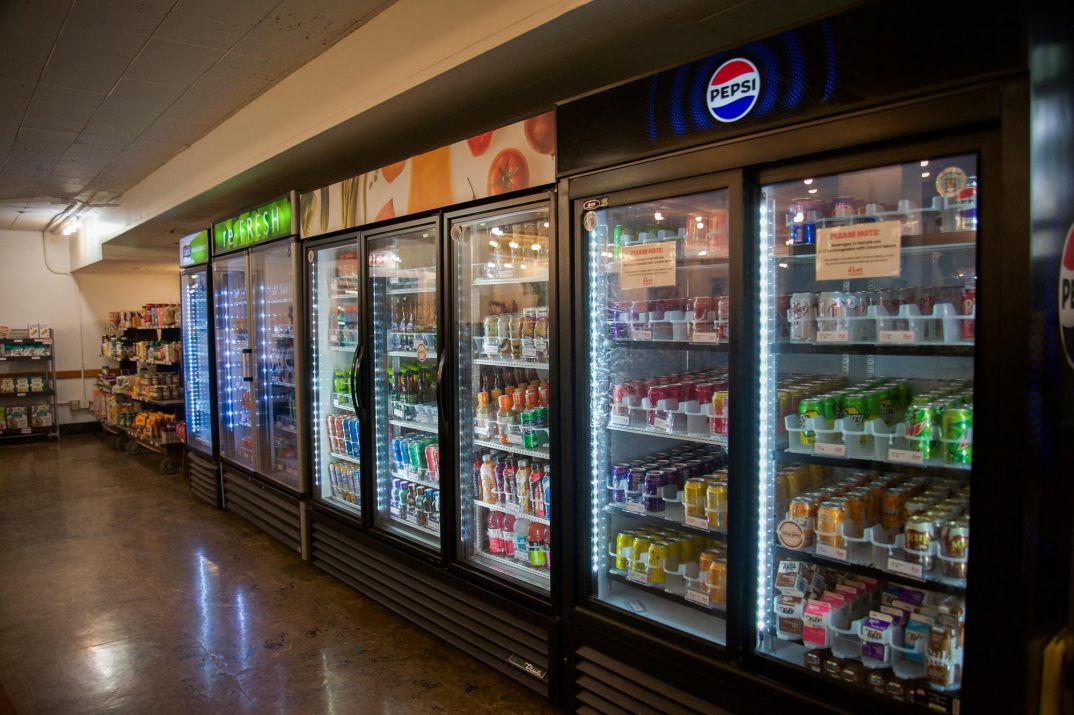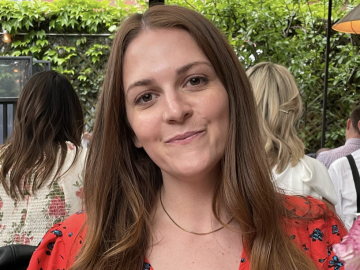This August, Oberlin College reinstated a ban on campus dining services selling or providing plastic water bottles. The College previously banned single-use plastic water bottles in 1999, which remained the case until 2020, when the COVID-19 pandemic began.
“Single-use plastic water bottles do not support the College’s climate commitment, or Oberlin’s leadership around sustainability,” Heather Adelman, sustainability manager, wrote in an email to the Review.
The Office of Energy and Sustainability has made many efforts to provide a smooth transition for students. Before reinstating the ban, they worked to ensure that additional water filler stations were installed across campus, especially in buildings that previously had none.
“Over 50 stations are now available with more planned this year,” Adelman wrote. “We also worked to educate the campus on the different regulatory processes for municipal versus bottled water and the impressive process the City of Oberlin uses at the drinking water plant.”
The conversation about sustainability regarding everyday single-use plastic continued with the course PSYC 308, Community-Based Social Marketing, which was taught by Psychology and Environmental Science Professor Cindy Frantz in fall 2023. Students created messaging to raise awareness about the environmental impacts of single-use bottles but observed no significant change in bottled water sales. However, the short study duration and external factors, like hot weather, made it difficult to track changes in behavior effectively.
Frantz said the study reignited momentum after the community minimized sustainability efforts during the pandemic.
“Our project reminded people, ‘Oh yeah, we said that this was important to us as an institution. Let’s get back to our original promise,’” Frantz said.
According to Frantz, sustainability requires constant reinforcement and institutional support, including physical infrastructure, educational reminders, and fostering a culture where reusable water bottles are the norm.
“When you’re trying to create a culture of sustainability, you can pass a policy, and you can have all these great conversations, but then a few years go by; students completely change over in four years, and even faculty and administrators change over,” Frantz says. “In order to really create lasting culture change, you have to have it sort of baked in, and you have to repeatedly commit to something over and over.”
College second-year Chapin Dobbins noted that preference and far distance from filtered drinking water played into their decision to purchase water.
“[Last year], my roommate and I would spend so many of our meal swipes on water,” Dobbins said.
As an Environmental Studies major, Dobbins acknowledges the harm perpetuated by single-use plastic.
“Taking away the plastic water bottles is an incredibly good thing; we are reducing our plastic waste,” they said. “However, not every viewpoint has been taken into account. While I understand that that’s incredibly difficult, there needs to be more talk about other perspectives and situations.”
However, there is concern about how the ban has shifted the consumption of beverages from plastic bottles to other single-use alternatives, such as canned sparkling water. While cans can be recycled in the program offered by the City of Oberlin, this has raised questions about the overall impact on waste reduction.
“Water bottles aren’t the main problem, but it is a good step in the right direction,” College second-year Grace Gordon said.
She noted the abundance of single-use plastics available for purchase in campus dining options, like plastic drink cups and food storage containers.
“[My studies] allow me to see the possible solutions that exist and be a little bit more critical of the College,” Gordon said. “We have made some big advancements; we have a lot of solar panels around campus and [thermal heating] is a huge innovation.”




